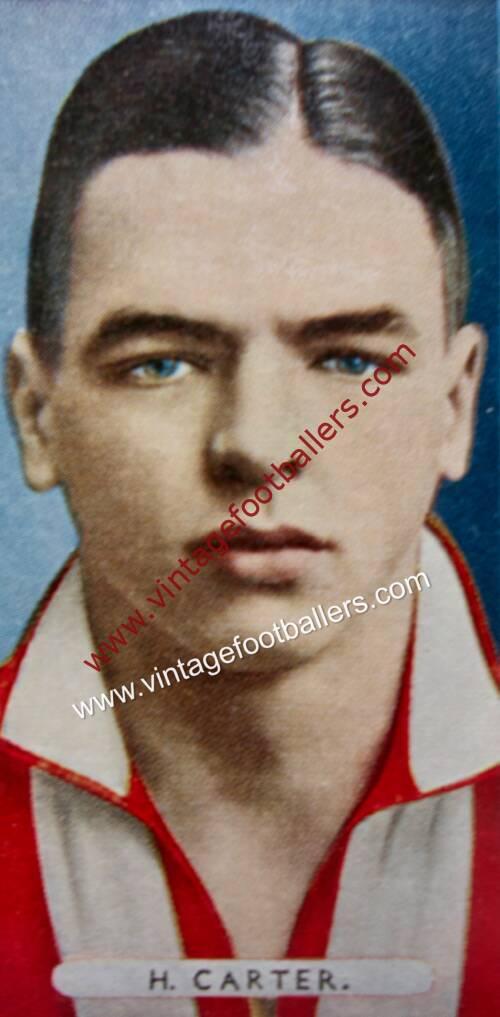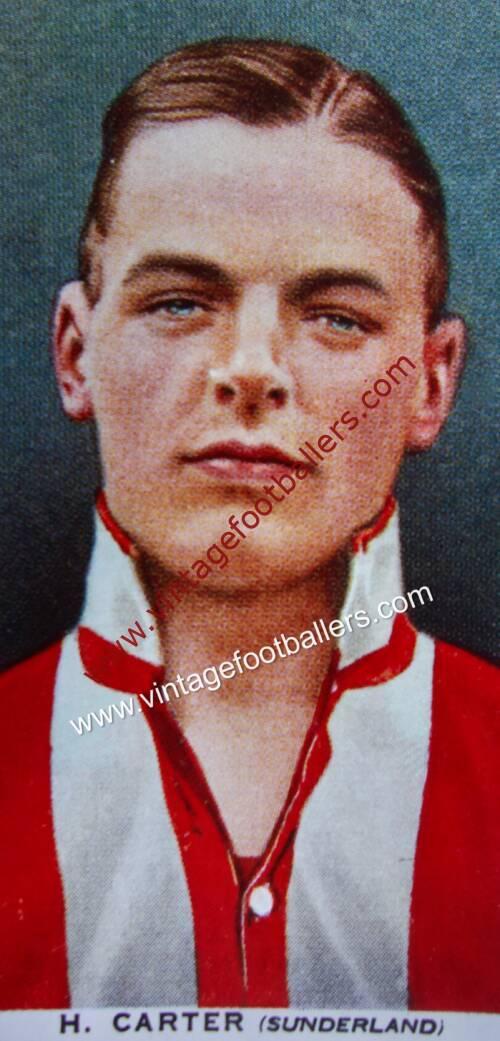Forward Horatio “Raich” Carter was one of the true greats of the football world to have come out of the 1930s. Born in Sunderland in 1913, son of a former professional footballer, Robert Carter, who had played for Port Vale, Fulham and Southampton, he signed for Sunderland as an amateur in November 1930, signing professional a year later and making his debut at Hillsbrough against Sheffield Wednesday in October 1932. Already club captain, he scored 31 goals in 39 games as Sunderland won the League Championship in 1936 (after being runners up the year before), scoring the winner the following year at Wembley in the FA Cup Final as Sunderland beat Preston North End 3-1. First capped for England in April 1934 against Scotland, he went on to win 13 caps either side of WW2, scoring 7 times, his final cap coming against Switzerland in May 1947. He also made 8 wartime appearances for England. In December 1945 Sunderland sold him to Derby County for £8000 after 131 goals in 281 games, and he immediately won the 1946 FA Cup with Derby scoring 12 goals in the cup run but none in the Final itself which Derby won 4-1 after extra time against Charlton. He scored 50 goals in 83 games for The Rams. In March 1948 Hull City paid £6000 to get Carter and 4 weeks later he was installed as player manager winning the Division 3 (North) Championship in 1949. He resigned as manager in September 1951 but continued to play for The Tigers until April 1952, scoring 62 goals in 150 appearances. In 1953 he had a short spell as player manager of Cork Athletic in Ireland before becoming manager of Leeds United that year, taking them to promotion in 1956 with John Charles at the centre of his team. He left the club in 1958 but returned to management in 1960 with Mansfield Town, staying 3 years before taking over at Middlesbrough, a spell which lasted a further three years. He also played 3 first class cricket matches for Derbyshire. His inclusion in our Heroes section is an easy decision, you only have to view the attached Youtube videos to get the impression of the esteem with which he was (and still is) held.


